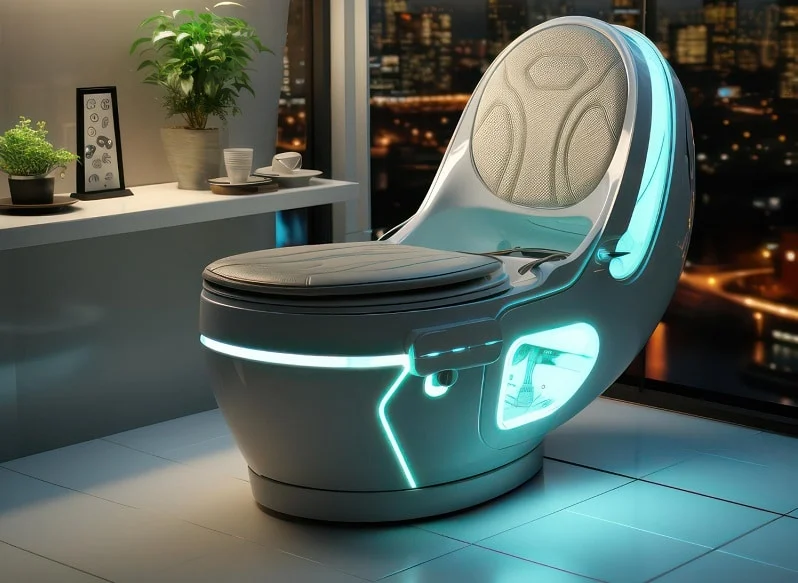In the realm of modern sanitation, modular innovative toilets are making waves, offering groundbreaking solutions that cater to diverse needs globally. As industries and communities strive for improvements in hygiene and sustainability, these toilets represent a paradigm shift towards smarter, more adaptable sanitation systems.
The concept of modular innovative toilets is not just about reimagining the traditional toilet but also about integrating technology, design, and functionality to meet the evolving demands of users. As we delve deeper into this topic, we will explore how these toilets are transforming the landscape of sanitation, providing enhanced user experiences and contributing to environmental sustainability.

Understanding Modular Designs
Modular design in toilets refers to the ability to customize and configure units based on specific needs and environments. This flexibility is crucial for addressing the varied requirements of different sectors, from residential to industrial applications. By employing modular designs, manufacturers can create toilets that are not only efficient but also adaptable to changing needs.
One of the key advantages of modular innovative toilets is their ease of installation and maintenance. The modular approach allows for quick assembly and disassembly, which is particularly beneficial in areas where resources are limited or where rapid deployment is necessary. This feature is especially pertinent in disaster-stricken regions or in developing countries where infrastructure is lacking.
Technological Advancements
Technological advancements play a pivotal role in the evolution of modular innovative toilets. From water-saving features to smart sensors that monitor usage and hygiene, these toilets are equipped with a range of technologies designed to enhance user experience and promote sustainability.
For instance, the integration of IoT (Internet of Things) technology allows for real-time monitoring and management of toilet systems. This capability is crucial for facility managers in optimizing maintenance schedules and ensuring that the toilets remain in optimal condition. Additionally, smart toilets can offer features such as automatic flushing, self-cleaning capabilities, and even health monitoring, making them a valuable asset in both public and private spaces.
Sustainability and Environmental Impact
The environmental benefits of modular innovative toilets cannot be overstated. With the global focus on reducing water consumption and minimizing waste, these toilets are designed to be eco-friendly and resource-efficient. Low-water toilets, for example, use significantly less water per flush compared to traditional models, contributing to water conservation efforts.
Moreover, the materials used in constructing modular toilets are often recyclable or sourced from sustainable origins, reducing the overall carbon footprint of the manufacturing process. By prioritizing sustainability, manufacturers are not only addressing environmental concerns but also appealing to eco-conscious consumers.
Addressing Global Sanitation Challenges
Modular innovative toilets are well-positioned to tackle some of the most pressing sanitation challenges faced by the global community. In many developing regions, access to proper sanitation facilities is limited, leading to health risks and environmental hazards. By providing affordable and adaptable solutions, modular toilets can significantly improve sanitation standards and enhance quality of life.
Furthermore, these toilets can be strategically deployed in urban areas where space is a premium or in rural areas where traditional infrastructure is unavailable. The ability to tailor toilets to specific needs ensures that no community is left behind in the quest for improved sanitation.

Industry Applications and Innovations
The versatility of modular innovative toilets extends to various industry applications, from healthcare to hospitality. In hospitals, for instance, the need for hygienic and easily accessible toilets is paramount. Modular designs offer the flexibility to adapt to the specific requirements of healthcare facilities, ensuring that patients and staff have access to reliable sanitation.
In the hospitality industry, where guest experience is a top priority, modular toilets can be customized to provide luxurious and convenient features. From touchless sensors to heated seats, these innovations enhance comfort while maintaining high standards of cleanliness.
For more insights on how modular toilets are revolutionizing industries, you can explore this [article on innovative toilet ideas](https://dripx.io/blogs/our-insights/innovative-toilet-ideas-for-disabled).
FAQ Section
What are modular innovative toilets? Modular innovative toilets are advanced sanitation systems designed for flexibility, efficiency, and sustainability. They can be customized and configured to meet specific needs and are equipped with technological features that enhance user experience.
How do modular toilets contribute to sustainability? These toilets are designed to conserve water and minimize waste, using eco-friendly materials and incorporating low-water usage technologies to reduce environmental impact.
Where can modular innovative toilets be used? They are versatile and can be used in various settings, including residential, commercial, healthcare, and hospitality industries, as well as in developing regions lacking traditional infrastructure.
This article contains affiliate links. We may earn a commission at no extra cost to you.






